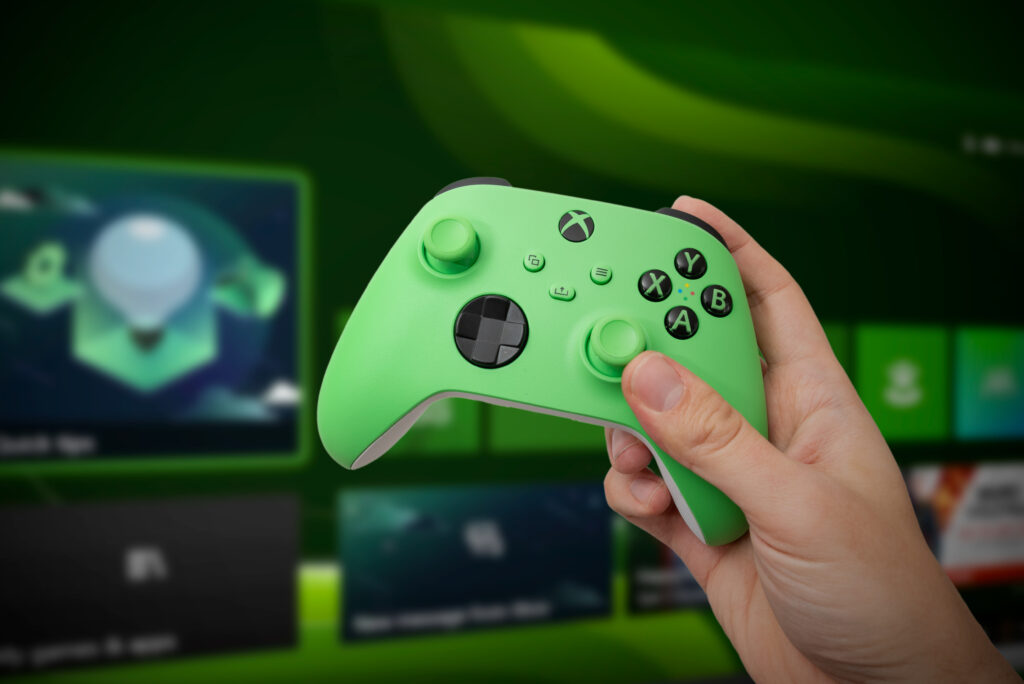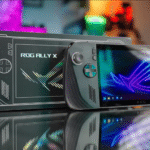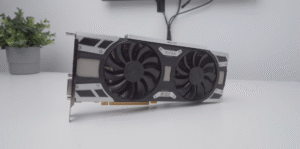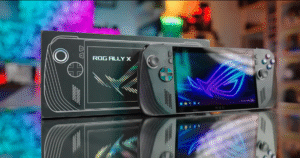New Xbox Console Expected in 2027 with AMD Power and AI Features

Microsoft is reportedly preparing to launch its next-generation Xbox console in 2027, signaling a major leap forward for the Xbox ecosystem. According to multiple reports and leaks, the new device will feature cutting-edge AMD hardware and AI-powered technologies, potentially making it the most powerful Xbox ever and possibly stronger than Sony’s upcoming PlayStation 6.
The upcoming console is expected to deliver significant improvements in graphics, speed, and overall gaming performance, supporting ultra-high resolutions, high refresh rates, and advanced ray tracing. Early leaks suggest the device could integrate AI-driven optimizations, allowing games to dynamically adjust performance for smoother gameplay and more immersive experiences.
Beyond raw power, Microsoft appears focused on creating a flexible, cross-platform ecosystem, combining console, PC, and cloud gaming. This approach could allow players to seamlessly access their games on multiple devices, making the 2027 Xbox not just a powerful console, but a central hub for the future of gaming. With these innovations, the next Xbox could redefine what gamers expect from a home console, setting a new benchmark for the entire industry.
Built on AMD Power
One thing seems almost certain: AMD is back at the heart of Xbox. Microsoft has forged a multi-year partnership with AMD to design custom chips specifically for the next-generation Xbox. These chips are expected to deliver a massive leap in performance, not just for graphics, but across the entire system, powering smoother gameplay, faster load times, and more responsive controls.
Early leaks suggest the console will feature AMD’s next-gen RDNA 5 or UDNA GPU architecture, paired with a Zen 6 CPU. This combination could significantly enhance ray tracing, AI-driven graphics, and real-time rendering, enabling games to look more realistic than ever. Expect richer textures, more detailed environments, and advanced physics effects that push immersion to a whole new level.
But AMD’s impact goes beyond visuals. The integration of AI and machine learning capabilities directly into the hardware could allow games to dynamically adjust performance based on the scene for example, maintaining ultra-smooth frame rates in complex battle scenarios without compromising visual fidelity. This means that developers could deliver larger, more intricate game worlds while keeping gameplay buttery smooth.
In short, with AMD powering the next Xbox, Microsoft is not just upgrading specs it’s redefining what a console can do, offering a gaming experience closer to high-end PCs while maintaining the accessibility and ease of a home console.
Next-Level Backward Compatibility
Backward compatibility has always been one of Xbox’s standout features and Microsoft shows no signs of changing that. The 2027 Xbox is expected to support the entire existing Xbox library, allowing players to continue enjoying their favorite titles from previous generations.
But it’s not just about running old games; reports suggest that these classic titles could receive enhanced visuals, faster load times, and smoother performance, thanks to the new AMD hardware and AI optimizations. This means beloved games could look and play better than ever before, giving both longtime fans and new players a revitalized gaming experience.
By combining next-gen power with full backward compatibility, Microsoft is ensuring that the 2027 Xbox honors its history while pushing the boundaries of modern gaming letting players enjoy the best of both worlds without compromise.
A More Open Gaming World
Unlike traditional consoles, Microsoft appears to be taking a more open approach with the next Xbox. Early reports suggest the 2027 console won’t be restricted to the Microsoft Store, allowing players to install games from Steam, Epic Games, and potentially other digital marketplaces.
This shift could blur the lines between console and PC gaming, creating a more unified experience across multiple platforms. Gamers might seamlessly access their libraries on Windows PCs, handheld devices, cloud services, and the console itself, all while enjoying the benefits of next-gen hardware and AI-driven performance.
By opening up its ecosystem, Microsoft is aiming to expand flexibility and choice for players, making the Xbox not just a gaming console but a central hub for modern, cross-platform gaming.
Rumored Hardware and Code Name
Fresh rumors suggest the next-generation Xbox could arrive in 2027, according to the YouTube channel Moore’s Law is Dead, known for accurate leaks on the PlayStation 5 Pro and other projects. Microsoft is reportedly discussing a launch window with partners and revealing early hardware details, indicating the roadmap is taking shape.
The console is said to feature an APU named Magnus with a chiplet design: one 144 mm² chiplet handles the CPU, display output, and an AI accelerator, while a 264 mm² chiplet serves as the RDNA 5-based GPU. The setup targets 68 compute units, 24 MB of L2 cache (five times Xbox Series X), and up to 48 GB of GDDR7 memory on a 192-bit bus.
The CPU reportedly combines Zen 6 performance cores with Zen 6c efficiency cores, sharing 12 MB of L3 cache. An integrated NPU delivers up to 110 TOPS, powering AI features like Microsoft Copilot.
Early leaks suggest Xbox Next could edge out PlayStation 6, targeting 4K at 144 FPS versus PS6’s 4K at 120 FPS. Microsoft seems to be positioning it as a premium console for the next generation, though nothing is official yet.
Some sources claim the new Xbox could outperform Sony’s PS6, though it might also come with a higher price tag possibly between €500 and €700. [Windows Noticias]
A Console or a Hybrid?
There’s growing speculation that Microsoft might take a different design route this time. Some leaks describe a “PC-friendly shell”, hinting at a more modular, hybrid-style system that bridges console power with PC flexibility. This approach could allow users to swap or upgrade key components such as the CPU, GPU, or storage something unheard of in traditional consoles.
If true, this would mark a significant shift in Microsoft’s strategy, moving away from fixed hardware generations toward a more adaptable ecosystem. Gamers could enjoy the plug and play simplicity of a console while benefiting from the customization and performance tuning typical of a gaming PC.
Moreover, a hybrid system could integrate seamlessly with Windows, the Xbox Cloud, and other Microsoft services, creating a unified gaming platform across multiple devices. This could blur the lines between console and PC gaming entirely, offering developers a single target platform while giving players unprecedented freedom in how they play and upgrade their systems.
In essence, Microsoft may be aiming to redefine what a “console” means in 2027 merging convenience, power, and versatility in a way that no other company has attempted before. [Business Standard]
The Road to 2027
If the rumors are accurate, production on the next Xbox has already begun, with a target release window in 2027. However, as with all long-term projects, timelines could shift depending on market strategy, hardware readiness, and competition particularly from Sony’s PlayStation 6 roadmap.
The company’s strategy seems aimed at launching the console at the ideal moment balancing technological maturity with strong first-party game support and ecosystem integration. If development continues smoothly, the 2027 Xbox could not only mark the beginning of a new generation of gaming but also solidify Microsoft’s vision of a unified gaming future across console, PC, and the cloud.
Final Thoughts
Microsoft’s upcoming 2027 Xbox could completely redefine what a gaming console represents evolving beyond traditional hardware into the core of a unified ecosystem that seamlessly merges console, PC, and cloud gaming into one connected experience.
Powered by AMD’s most advanced architecture and AI-driven performance enhancements, this next-generation Xbox aims to deliver more than just raw power. It’s being designed as an intelligent, adaptive platform capable of optimizing performance in real time, personalizing gameplay experiences, and integrating effortlessly with Microsoft’s wider ecosystem of services and devices.
If these ambitions come to life, the 2027 Xbox won’t merely compete with Sony’s PlayStation 6 it could reshape the future of interactive entertainment, setting a bold new standard for what gamers expect from a console in the modern era.









